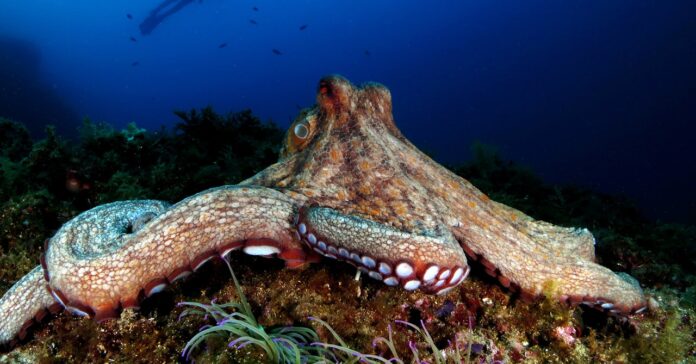She then gave a painkiller to the octopuses that gained the stinging shot and noticed that they tended to desire the chamber by which they were given the ache reduction. The saline crew, in the meantime, didn’t display a choice. The consequences, she concluded, are proof that octopuses revel in a unfavourable emotional state when uncovered to ache.
The transfer towards treating cephalopods utilized in analysis extra humanely began in 1991, when Canada changed into the primary nation to undertake protections for them. In 2010, the Eu Union handed a directive to increase protections already in use for vertebrate lab animals to incorporate cephalopods. Australia, New Zealand, Switzerland, and Norway have additionally followed laws. Ultimate yr, after an unbiased file concluded that cephalopods and crustaceans have the capability to really feel ache and misery, the UK handed an modification spotting them as sentient beings.
In the United States, a bunch of petitioners led by means of Harvard College’s Animal Regulation & Coverage Sanatorium despatched a letter to the NIH in 2020 asking the company to amend the definition of “animal” in its coverage on laboratory animal welfare to incorporate cephalopods. The letter made its technique to Congress, and closing October, 19 lawmakers asked that the United States Division of Well being and Human Services and products, which contains the NIH, undertake humane care dealing with requirements for them. “Lately, there was a wealth of study demonstrating that cephalopods are delicate, clever creatures who, like different animals utilized in biomedical analysis, should be handled humanely,” they wrote.
Jennifer Mather, a professor of psychology on the College of Lethbridge in Canada, additionally welcomes this motion. Mather, who has been finding out octopuses for 40 years, used to be a signatory at the 2020 Harvard letter. “As we make bigger the populations of species that we use for analysis, we need to additionally make bigger our pondering of what issues to them, and the way we will be able to care for them,” she says.
To that finish, she says researchers wish to consider tips on how to lift and space cephalopods. Those animals require refuge or dens, they usually want common enrichment in order that they may be able to specific their commonplace conduct. And he or she notes that as a result of many octopuses and squid are cannibalistic, they will have to be saved in separate tanks.
Some other attention is the water high quality in their tanks, says Clifton Ragsdale, a professor of neurobiology on the College of Chicago who research octopuses. Deficient water high quality could make the animals stressed out and even kill them. He thinks the NIH’s proposal could be very cheap and welcomes new laws. “I’m hopeful that those laws received’t be laborious and can strengthen the standard and roughly analysis that’s achieved,” he says.
Frans de Waal, a biologist and primatologist at Emory College, says new laws may just assist scale back invasive experiments on cephalopods, equivalent to ones that contain detaching their fingers. “I believe there are going to be questions on: Is that this in point of fact essential?” says de Waal, who additionally directs the Residing Hyperlinks Middle, which research moral and coverage problems associated with animal sentience. “I would like for scientists to begin pondering in different ways.”





 #shorts #shortsfeed #nature #youtubeshorts #iciness
#shorts #shortsfeed #nature #youtubeshorts #iciness